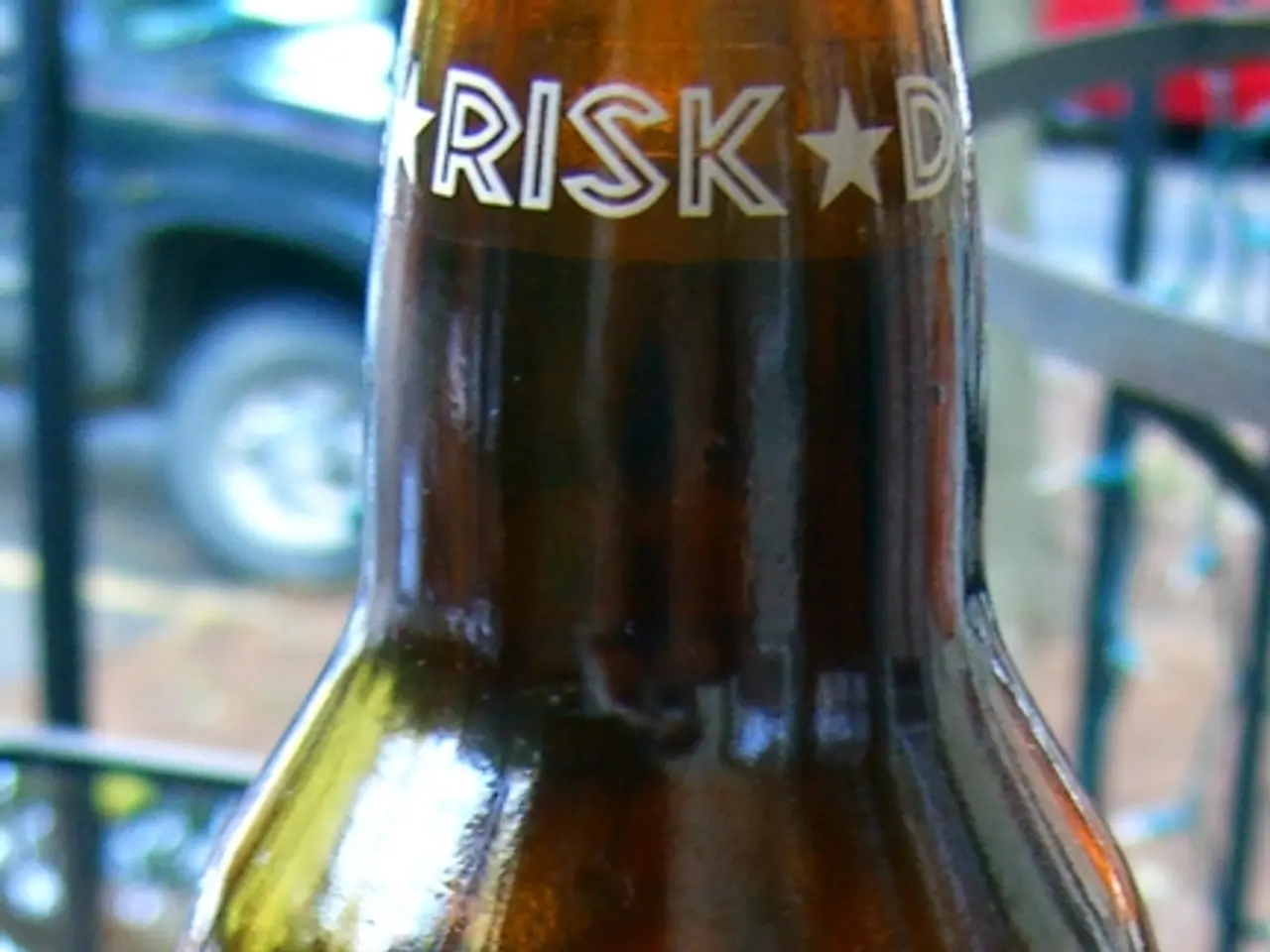Summer Heat and Alcohol Combination Leads to Risk of Heatstroke
Staying Hydrated During Hot Weather: A Guide to Alcohol Consumption
Alcohol consumption can pose significant health risks during hot weather, as it acts as a diuretic and impairs the body's ability to regulate temperature. This combination can lead to dehydration, heat exhaustion, and potentially life-threatening heat stroke.
Alcohol dilates blood vessels, initially increasing heat loss but also causing a false sensation of warmth and preventing effective temperature regulation. Its diuretic effect causes fluid and electrolyte loss, worsened by sweating in the heat. This fluid loss can lead to dehydration and impaired temperature regulation, making it harder to cool down by sweating.
To avoid these risks, it is crucial to stay well-hydrated by drinking plenty of water—ideally alternating water with alcoholic beverages—and to limit alcohol consumption or avoid it altogether on very hot days. Seek shade, rest regularly, and monitor for symptoms of dehydration or heat-related illness (such as dizziness, confusion, or headache) to respond quickly if they occur.
Hydration strategies such as "zebra striping" (one alcoholic drink followed by two glasses of water) help reduce dehydration risk while drinking. Avoid caffeine and excessive sugar in the heat, as these can worsen dehydration. Taking breaks in shaded, cool areas and using damp cloths on the body can also help manage heat exposure.
In addition to water, there are other natural ways to help reduce the risk of heat-related illnesses. Beet powder mixed with water can help increase blood flow and have a cooling effect. Eating salty foods while drinking can help retain fluids. Beets help the body produce nitric oxide, which increases blood flow and has a cooling effect.
Consuming tortilla chips and pretzels can also be beneficial during summer drinking, as they contain sodium, which helps retain fluids. However, it's important to remember that these foods should not replace water or other hydration strategies.
In conclusion, following these precautions can significantly reduce the dangers of drinking alcohol during hot weather and help prevent heat-related illnesses. By staying hydrated, seeking shade, and monitoring for symptoms, you can enjoy alcoholic beverages safely during hot weather.
References:
[1] Mayo Clinic. (2021). Alcohol and dehydration. [online] Available at: https://www.mayoclinic.org/healthy-lifestyle/nutrition-and-healthy-eating/in-depth/alcohol/art-20045673
[2] American Heart Association. (2021). Alcohol and Health. [online] Available at: https://www.heart.org/en/health-topics/alcohol/alcohol-and-health
[3] Centers for Disease Control and Prevention. (2021). Heat-related illnesses. [online] Available at: https://www.cdc.gov/disasters/extremeheat/heat-related-illnesses.html
[4] National Health Service (UK). (2021). Heatwave advice: stay safe in hot weather. [online] Available at: https://www.nhs.uk/live-well/healthy-body/heatwave-advice-stay-safe-in-hot-weather/
Maintaining a balanced approach to health-and-wellness, specifically in terms of hydration, fitness-and-exercise, and nutrition, is essential during hot weather. Consuming water, alternating with alcoholic beverages, and proactively monitoring for symptoms of dehydration can help ensure a safe drinking experience in hot weather while also promoting overall health and wellness. Additionally, incorporating science-backed strategies like "zebra striping," losing caffeine and excessive sugar, and choosing electrolyte-rich foods like beet powder, salty snacks, and cold foods can further reduce the risks of heat-related illnesses.




